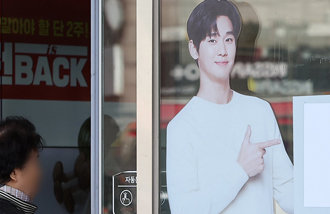Do these clinics deserve the title?
Do these clinics deserve the title?
Posted November. 06, 2024 08:28,
Updated November. 06, 2024 08:28
In Seoul’s Gangnam district, three of every five dermatology clinics reportedly don't provide medical attendance for babies and infants. According to a survey by Dong-A Ilbo asking whether they could treat a three-year-old child with hives, 57.5% or 256 out of the total 445 respondents replied that they are unable to provide such medical care. In particular, 80% of those without a certified dermatological specialist replied that they did not treat skin diseases. They only offer aesthetic treatments such as Botox and laser therapy, which are not subject to government price controls.
As a result, not a few patients look for dermatologists who can treat skin diseases such as rashes or eczema. Patients end up in a major university hospital to treat a tiny plantar wart that should be handled at local clinics. Parents share lists of dermatology clinics for skin emergencies for their children. The situation is similar for plastic surgeons. An investigation by Gangnam Public Health Center found that only one in five plastic surgeons in the area offer reconstructive surgery to repair damaged body parts. Things are not so different elsewhere.
It is ethically unacceptable that doctors refuse de fact to treat patients like that. Some patients even argue that such clinics should just put up signs for beauty salons instead of clinics. Maybe doctors are not the only ones to blame here. A severe gap between medical costs of insured therapies and uninsured ones by the national medical insurance is reportedly cited as a structural problem. A doctor performing two full-face filler treatments earns as much as treating 70–80 children with skin troubles all day. That, in turn, drives other medical specialists in areas such as pediatrics to offer aesthetic procedures, resulting in an increasing shortage of doctors for essential healthcare.
Medical reimbursements that are even lower than the medical net cost should be raised to a reasonable level. Additionally, other relevant professionals should be able to provide aesthetic treatment and services to encourage more competition in the industry. Physicians under the medical category do not need to monopolize low-risk procedures. The essential medical policy package released in early 2024 by the government includes similar measures. Therefore, it should be pursued in conjunction with resolving conflicts over increasing the medical student quota.
Headline News
- Opposition parties pass amendment to Commercial Act
- Impeachment motions against top officials dismissed
- IU's residence ranked as the nation's most expensive apartment
- K-medicine saves 300 lives in Mongolia through liver transplant skill transfer
- Prisoners in N. Korean camps suffer from torture at minus 30 degrees







